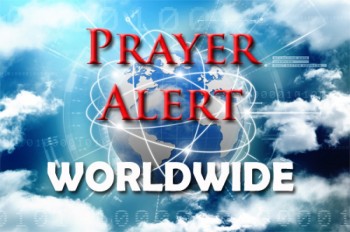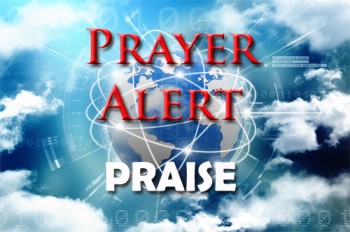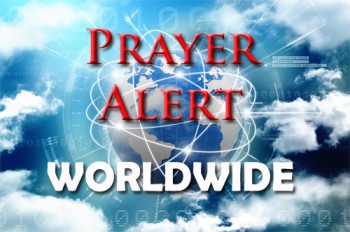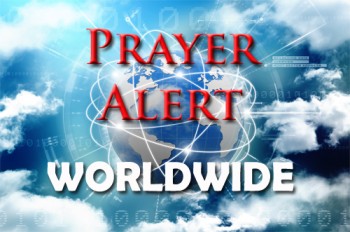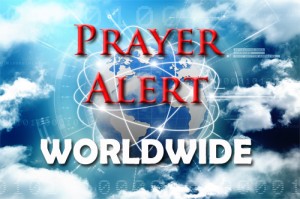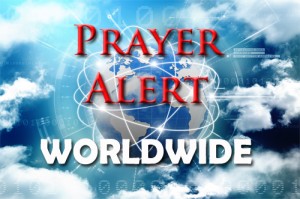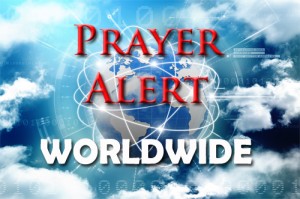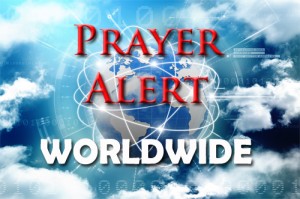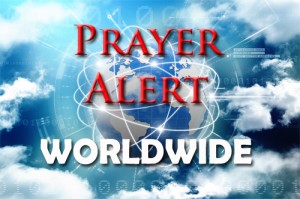Displaying items by tag: Bangladesh
Bangladesh: Christians abducted, attacked in refugee camp
Rohingya pastor, Taher, and his 14-year-old daughter were abducted from Bangladesh Cox’s Bazar a refugee camp after 59 men attacked 22 Christian families, beating residents, vandalising homes, and looting property. At least 12 Christian refugees were injured and hospitalised and a makeshift Christian church and school were smashed. Families were relocated to a UN transit centre and filed a police case against the armed ethnic group, Arakan Rohingya Salvation Army. Taher’s wife, Roshida, fears her husband is dead and that her daughter has been forced to convert to Islam. She said, ‘No one can give me clear information.’ Approximately 1,500 Rohingya Christians are among 700,000 predominantly Muslim Rohingya refugees who fled ‘ethnic cleansing’ in 2017. Authorities described the attack as a ‘law and order incident’ - not Christian persecution. They do little to protect Christians. One said, ‘if victims wanted safety they should ‘go to the moon.’
He was the answer to his own prayers
Philip saw members of his isolated tribal community in Bangladesh dying from simple diseases (malaria, diarrhoea, childbirth complications) because there was no medical care. ‘I asked God to open a door for our community because I could do nothing. I never thought that God would open the door through me!’ With help from Open Doors, Philip trained as a rural doctor and returned to his village to serve as a pastor and a doctor, providing medical help and supporting Christian families who were mocked and insulted in a traditionally Buddhist tribal community. ‘But now they have started respecting the Christians. They buy medicine from me and say good things about my service. I am building good relationships with them and telling them about Jesus Christ.’
Global: mothers speak out on climate change
From the vanishing Solomon Islands to the burning Amazon rainforest, mothers speak up from danger zones. Alice, in Brazil, fears for her two-month-old son: ‘It is hotter than when I was a child, and I don’t know how it will be when he grows up. There is more pollution, he’s already having breathing problems. I am privileged to live in this paradise, but I look around today and fear that we are losing it.’ Baby Rafsan lives in Dhaka, Bangladesh, the most overpopulated city in the world. His mother said, ‘We fear for our futures but not enough to quit using cars to save the climate'. By 2050 one in seven people will be displaced by rising sea levels - that’s 18 million people. Bangladesh will not exist in 100 years if carbon dioxide emissions remain the same. ‘My baby should not be wearing a mask’, said a mother in Delhi.
India: four million stateless people?
On 31 August four million Indians could become stateless. In Bangladesh's war of independence from Pakistan fifty years ago, millions of Bengali Muslims fled to Hindu Assam, giving it the second largest Muslim population of any Indian state after Kashmir. Last year, the Assam government published a national registry of citizens, listing everyone who is legally resident. Four million Muslim people who have lived there for decades were not on the list. Unless they can prove a pre-1971 claim to residence, they will be deemed illegal. Bangladesh will not accept the deportation of millions of people who have lived in India since the 70s. Many of these people were born inside India after 1971. Should they be ‘returned’ to a country they have never known? The Assam authorities are building detention camps which could constitute a horrific human rights violation.
Bangladesh: Myanmar children need psychological support
‘Children are visibly traumatised and distressed, and many have stopped speaking,’ said a Save the Children team member in Bangladesh. Displaced children arriving there are exhibiting signs of trauma such as nightmares and loss of speech after witnessing horrific violence, and are in urgent need of psychological and emotional support. As well as providing food, water and shelter to more than half a million, charities have identified psychological and emotional support services as a critical need. Most of those arriving from Myanmar are women and girls: some have been raped and sexually abused. Hundreds of children are separated from their families, and report having witnessed violence first hand. Their enormous psychosocial needs are obvious to anyone walking through the camps and makeshift settlements.
Myanmar: Rohingya refugees flee violence
The Rohingya Muslims have lived for centuries in the majority Buddhist Myanmar. On 24 August the media reported clashes between Rohingya militants and Buddhist security forces in Rakhine state. Within two weeks the clashes escalated to a military operation, causing 15,000 Rohingya to flee daily to Bangladesh. The situation is becoming a humanitarian crisis in overstretched border camps, and 400,000 Rohingya are trapped in conflict zones where military ‘clearance operations’ continue. UN aid agencies are blocked from delivering food, water and medicine and humanitarian workers reported looting in warehouses stocking vital emergency supplies. Bishop Desmond Tutu has joined others criticising president Aung San Suu Kyi due to the ‘clearance’ actions of the army. In 2015, during a similar mass migration of Rohingya fleeing by boat from Myanmar, an estimated 25,000 were taken by human traffickers and many died at sea. This time an aid group rescuing refugees from the Mediterranean Sea is redirecting its ship to the Bay of Bengal. Pray for a greater international response. See also
Asia / Africa: devastating floods and landslides
The annual monsoons in India, Bangladesh, Nepal and Sierra Leone have caused hundreds of deaths, while thousands have fled flash floods and mudslides. In Nepal’s southern plains, the home to much of its agriculture, huge swathes of land and 48,000 homes have been totally submerged by floods. Pray for those stranded on higher ground taking shelter in sheds, unable to move until the water recedes. Pray for the Bangladesh troops shoring up embankments, in places where such severe flooding has not been seen for thirty years. Authorities suggest the flooding is man-made, caused by the dams built on the India-Nepal border. Pray also for those grieving for the many hundreds who were killed by mudslides and floods in Sierra Leone’s capital, Freetown. Many were buried alive as they slept. Pray for governments and NGOs as they work to support those who have lost not only homes but paddy fields, vegetable plantations, and fish farms. See: http://edition.cnn.com/2017/08/17/africa/sierra-leone-mudslide/index.html
Extreme weather: Sri Lanka and Bangladesh
The worst monsoon since 2003 hit Sri Lanka after two months of drought. 194 people died, and the toll is expected to rise. 99 people are missing, and 112 injured. Over half a million people are affected. Red Cross, police, foreign aid workers, and military are giving first aid, organising search and rescue missions, and distributing food and water. Homes are uninhabitable. Barnabas Fund reported that 200 churches and 5,000 Christian families are affected. However, Christians have not sought shelter in relief camps, fearing persecution, especially those in Buddhist temples. On 30 May Cyclone Mora’s winds of 85 mph lashed Bangladesh forcing the evacuation of 2.5 million people, killing at least six, destroying 20,000 houses and felling hundreds of trees. Meanwhile President Trump is expected to withdraw from the Paris climate agreement, according to two senior US officials familiar with his plans - a major reversal of the previous administration's efforts on climate change. See:
Bangladesh: trafficked girls learn Hindi
Trafficked from Bangladesh and sold into a brothel in Mumbai, Babli started learning Hindi last year at the shelter where she was put up after being rescued. She can now read, write and speak the language fluently, thanks to Hindi classes that help girls identify their trafficking routes and record more accurate testimony. ‘I was brought to Kolkata from Bangladesh, but I couldn't read the names of train stations that I crossed on my way to Mumbai’, Babli said. Two northern Hindi-speaking towns of Varanasi and Gorakhpur have been identified as hubs in the trafficking routes towards the major cities. Activists say that identifying routes is important - not only to step up police vigilance in these areas, but also to protect the girls who go back home after a court case and are once again exposed to trafficking risks. An inadvertent outcome of these lessons at the shelter is that some of the girls have obtained places in regular schools this year.
